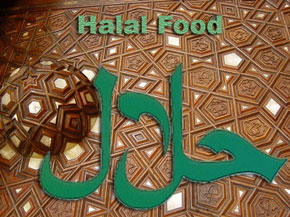There is little known in Ireland about its relationship with Islam and Muslims throughout the years. Indeed, for many Irishmen (and women), it’s difficult to even figure out where to start analyzing this relationship. So, let’s begin during the Irish Famine. In Ireland, it was perhaps the most difficult time in the island’s history. Half way around the globe in Turkey, the Ottoman Empire was exactly that: an Empire, and one of the most powerful political entities in the entire world. Little does anyone know that Irishmen (and women) and Turkmen (ditto) during the 1840’s actually had an important and heartwarming relationship:
To capture this time, a joint Irish-Turkish film producing company is putting together the film ‘Famine’, starring Colin Farrell, about a love story between Fatih, an Ottoman sailor, and Mary, an Irish girl, during the famine. Below you can read more from the Hurriyet Daily News:
Bringing a little-known aspect of the most traumatic period in Ireland’s history to the silver screen, a new film is set to tell the story of how the Ottoman Empiresent aid to the emerald isle at the outset of the potato famine in 1845.
“Famine” will be shot in both Ireland and Turkey on a $50 million budget and include noted Irish actors like Colin Farrell, as well as several Turkish movie stars.
Shooting on the film is set to start in October, while the movie is expected to be in theaters sometime next year.
Ömer Sarıkaya, the film’s scriptwriter and project manager, said they had signed an initial agreement with the Independent Film Development Corporation (IFDC).
Sarıkaya said that as well as including well-known actors like Saoirse Ronan, Sean Bean and Farrell, renowned Turkish actors Burak Özçivit and Kenan İmirzalıoğlu would also act in the film as well.
The film’s screenplay, which was written by Sarıkaya himself, details a love story between Fatih, an Ottoman sailor, and Mary, an Irish girl, during the famine.
“With the film we aim to shed light on a lesser-known aspect of history. The character Mary will be played by Irishwoman Saoirse Ronan while Fatih and Sultan Abdülmecid will be played by Özçivit and İmirzalıoğlu, respectively,” he said.
It was after taking a trip to Ireland that Sarıkaya said he decided to write the screenplay for the film. Four years ago, while he was preparing to head to Ireland for his trip, Sarıkaya noticed the northwestern city of Drogheda’s coat of arms included a crescent and star. His interest was piqued by an Irish city’s use of a Turkish symbol, and so Sarıkaya set off for the city, which lies 50 kilometers north of Dublin.
“I searched through the archives in Ireland and Turkey, and I visited many libraries to complete the screenplay [on the basis of the Ottoman aid for Ireland during the famine]. I also added the love story of Fatih and Mary,” he said.
Irish Great Famine
The Irish famine first began in 1845 due to blight on Ireland’s main source of food — the potato, and lasted until 1851, resulting in the deaths of a million people and the immigration of more than 2 million citizens. Ultimately, the famine caused Ireland’s population to drop from 8 million to 5 million.
Turkish Sultan Abdülmecid decided to send 10,000 pounds in aid to Ireland after being informed of how devastating the famine was in Ireland. However, Britain’s Queen Victoria replied, saying they would only accept a thousand pounds in aid. In response, Sultan Abdülmecid secretly sent five ships full of food, as well as cash, to Ireland.
Because the ships could not approach Dublin’s port after their long journey, they altered their course, bringing their food instead to Drogheda.
With this generous act the Ottoman Empire gained the appreciation of the local public. The crescent and the star was subsequently adopted as the local football team’s symbol, while a copy of a plaque of appreciation that was given to the Ottoman Empire was hung on the façade of a Drogheda hotel located on the city’s most important avenue.
A letter of gratitude to Sultan Abdülmecid
In addition, Irish noblemen sent a letter of gratitude to Sultan Abdülmecid for the Ottoman ruler’s efforts. The actual letter, which is now located in Topkapı Palace, said, “We, the undersigned Irish noblemen, gentlemen and residents present our gratitude respectfully for the generosity, benevolence and concern and [monetary] donation that is endowed by your majesty to the suffering Irish public to meet the needs of them and appease their sorrows.”
Noting that the historical bond between Ireland and Turkey was unknown, Sarıkaya said the film’s biggest aim was to promote the Ottomans’ tenderness and greatness to the world and to show that Turkish people, the successors of the Ottomans, were not “barbarians or invaders.”
“The film will be in theaters in many countries, particularly in the United States, Turkey and Ireland, and will contribute to Turkey’s promotion to the world,” he said.
He also said he would go to the U.S. to sign the final agreement with the IFDC and that the Irish culture minister had given his full support for the film at a recent meeting in Dublin.



